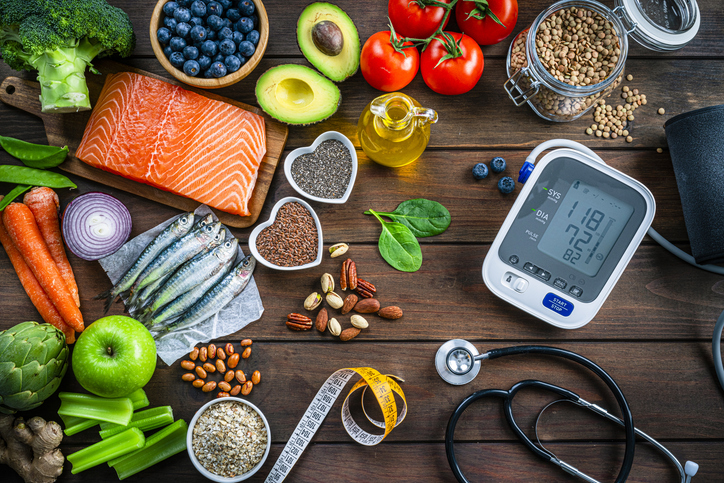Nutrition and heart health: why a good diet matters

When it comes to heart health, what we eat can make a world of difference. The UK Gill Heart & Vascular Institute is helps patients navigate the often overwhelming world of heart-healthy eating.
Below, you'll find dietitian-led advice and guidance about the importance of diet in supporting heart health.
How nutrition supports heart health
It can be difficult for patients who've experienced heart events to make healthy eating changes. Nutrition is vital in this process because it provides the building blocks for heart health.
A balanced diet, rich in vegetables, fruits, whole grains, lean meats and low-fat dairy is essential for optimizing heart health.
Ensuring the body receives the essential fiber, antioxidants, minerals, and nutrients it needs can be achieved through a balanced diet. This balanced approach also allows room for occasional indulgences, such as desserts and red meat, without compromising heart health.
Modifying your diet
A practical approach to modifying diet starts with assessing your current eating habits. Begin by increasing the proportion of vegetables on your plate and opting for fruit instead of dessert.
Pay attention to meat portions by trying to reduce portions while still ensuring you feel full and satisfied. While many nutrients contribute to overall heart health, fiber is a key player in maintaining cardiovascular health. Fiber helps reduce cholesterol levels and inflammation, thus lowering the risk of coronary artery disease.
Incorporating fiber-rich foods like whole grains, fruits, and vegetables into your diet can be highly beneficial.
The role of fats, sodium, and sugar in heart health
Fats, sodium and sugar are often looked at as major factors to watch when being conscious of heart health.
Fats are a crucial part of the diet, and their types matter significantly. I recommend opting for unsaturated and omega-3 fats, which are beneficial for heart health. Limiting saturating fats is important because they raise cholesterol. Trans fat has only been shown to increase heart disease and should be avoided if possible.
Sodium is also an important piece of heart health. Many Americans average 4,500 mg per day versus the recommended 2300 mg. Sodium intake can be reduced by cutting back on processed foods, cooking at home and using herbs and spices instead of salt.
Lastly, sugar’s impact on heart health is important. It’s recommended to limit added sugars to no more than 36 grams per day to reduce the risk of heart disease. Also, avoid sugary beverages and read labels to manage sugar intake effectively.
A balanced, heart-healthy meal
There are so many diets, and it’s difficult to understand which ones can be helpful or not. The Gill Heart & Vascular Institute recommends following MyPlate guidelines for a simple guide on the best-balanced meal.
A heart-healthy meal often follows the MyPlate guidelines, which suggest including at least three different food groups on your plate. Aim for a majority of vegetables, a moderate portion of lean meat, and a balanced addition of whole grains. This approach ensures that you are getting a range of nutrients while keeping your heart health in check.
Additional resources for heart-healthy nutrition
For those looking to dive deeper into heart-healthy nutrition, several resources can provide valuable information:




